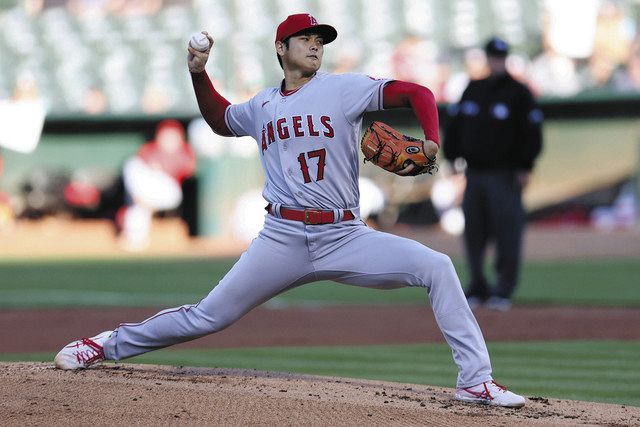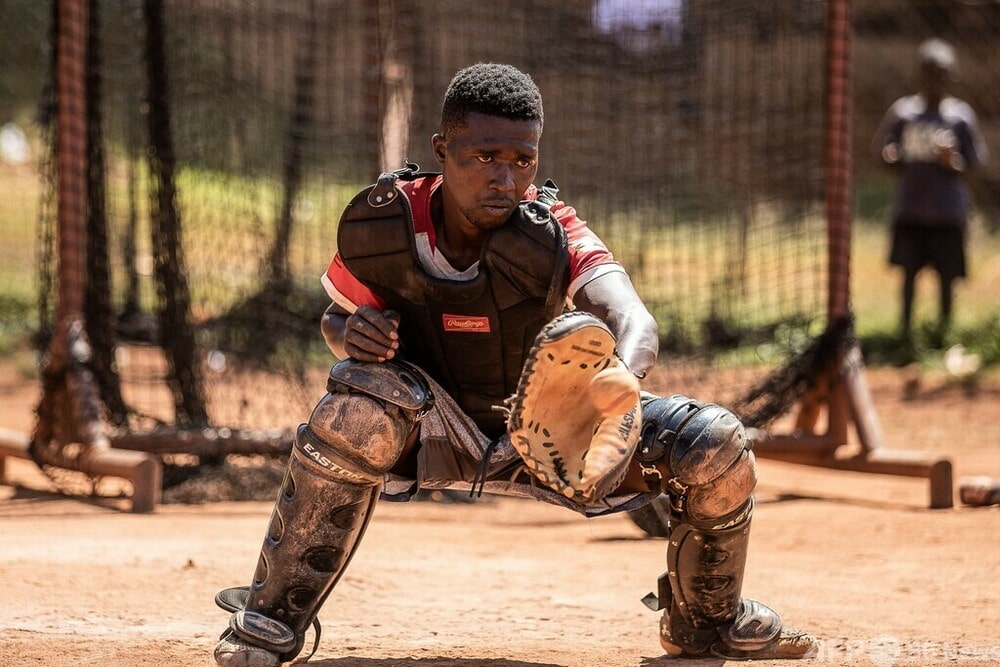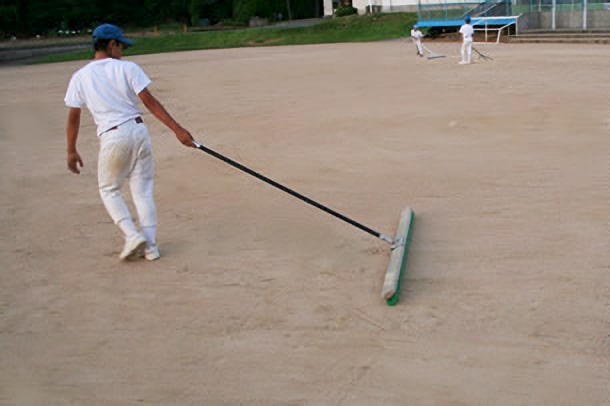
In order for baseball players to grow and succeed, they need rigorous training and an environment that allows them to concentrate.
For this reason, many professional baseball teams and strong high schools set up dedicated baseball dormitories for their players.
A baseball dormitory is a place where players can live and concentrate on training, and it is also a place where they can deepen their bonds with teammates.
In this article, we’ll take a closer look at life in a baseball dormitory and what makes it so appealing, and explore the kind of environment in which players live and develop.
We will introduce various aspects of baseball dormitories, from their basic role to the living environment, daily schedules, benefits and challenges of living in the dorms, and even stories about famous players.
目次
- 1 What is a baseball dormitory?
- 2 Living conditions in the baseball dormitory
- 3 Daily schedule at the baseball dormitory
- 4 The benefits of living in a baseball dormitory
- 5 Discipline and rules in the baseball dormitory
- 6 Issues and areas for improvement in the baseball dormitory
- 7 Success stories and episodes from baseball dormitories
What is a baseball dormitory?
A baseball dormitory is a facility that provides an environment where baseball players can live and concentrate on training and games.
It is run by professional baseball teams and strong high school baseball teams, and provides support to enable players to practice efficiently.
Here we will take a closer look at the basic role of baseball dormitories as well as their history and development.
The basic role of the baseball dormitory
The main functions of the baseball dorm are as follows:
-
Providing a training environment where players can concentrate : The baseball dormitory provides an environment where players can concentrate on training and games. It is equipped with dedicated training rooms and grounds, and is equipped with the equipment necessary for daily practice. In addition, coaches and trainers are always on-site, so players can improve their skills with expert guidance.
-
Lifestyle support : In the baseball dormitory, support for daily life such as meals, laundry, and cleaning is provided. Nutritious, balanced meals are provided every day, and the health of the players is thoroughly managed. In addition, by eliminating the hassle of laundry and cleaning, an environment is created where players can concentrate on practice and games.
-
Team building : Living together in a baseball dormitory deepens communication between players and strengthens team unity. Living together and supporting and encouraging each other strengthens the bonds of the entire team. This also improves the quality of team play during games.
-
Mental support : In baseball dormitories, mental support for players is also important. Counselors and mental trainers are sometimes on-site, so players can receive appropriate support when they feel stressed or under pressure. This allows players to approach training and games in a mentally stable state.
The history and development of baseball dormitories
Baseball dormitories have a long history, and as they have developed, they have produced many excellent players.
-
Early Baseball Dormitories : The history of baseball dormitories dates back to the time when professional baseball teams in Japan were founded. Early baseball dormitories were established primarily for the purpose of developing young players. Players could live together and train here. Although facilities were limited at first, basic living conditions and training equipment were provided.
-
Improvement and diversification of facilities : As time went on, the facilities of baseball dormitories also improved. The latest training equipment and sports science were introduced to improve players’ performance. The importance of nutritional management and mental training was also recognized, and support systems for these were strengthened. Furthermore, recreational facilities where players could relax and study rooms were also established, creating an environment that supports the overall growth of players.
-
The spread of dormitories in high school baseball : It has become common for strong high school baseball teams to set up dormitories. This has made it possible to accept promising players from regional areas, and has led to the development of national-level players. High school baseball dormitories are well-equipped to support players in balancing their studies and baseball, and provide an environment where players can devote themselves to practice with peace of mind.
-
Future outlook : Baseball dormitories continue to develop, and further improvements are expected in the future. For example, the use of AI and IoT technology to individualize training and the analysis of player data are improving performance. In addition, as the importance of mental health care for players is increasingly recognized, there is a demand for the development of specialized support systems.
Baseball dormitories are important facilities that provide an environment essential to the development and success of players.
By providing an environment where players can live with peace of mind and concentrate on training, we can bring out the best in their talents.
Next, let’s take a look at the specific living conditions in a baseball dormitory.
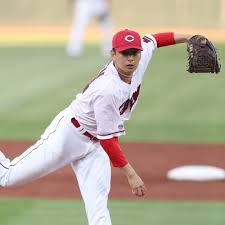
Living conditions in the baseball dormitory
Baseball dormitories are facilities designed to allow players to live comfortably while concentrating on their training.
Here we will explain in detail the layout and facilities of the baseball dormitory rooms, as well as the shared facilities and how to use them.
Room layout and facilities
The baseball dorm rooms are designed for players to relax and get quality rest.
Below is a typical room layout and facilities:
-
Room layout :
- Single Room : A private room provides a private environment where players can rest, study, and relax in peace and quiet.
- Double Room : This double room is designed to encourage interaction between players. Living in the same room will help you develop stronger bonds with your teammates.
- Shared spaces : Each room may have a shared living room and/or kitchen, allowing players to relax and socialize with each other.
-
Facility :
- Beds : High quality beds are provided to help you sleep comfortably, and are generally single or twin size.
- Storage space : There are closets and shelves to organize your clothes and personal belongings, making it easier to keep your room tidy.
- Study desk : Equipped with a desk and chair that can be used for studying or self-training. Athletes can use this desk to plan their schoolwork and training.
- Air conditioning and heating : The rooms are equipped with air conditioning to keep the room temperature comfortable. Temperature control is provided according to the season.
- Wi-Fi : A Wi-Fi environment with internet access is available, allowing players to easily gather information and communicate with each other.
Common facilities and how to use them
The baseball dormitory is equipped with numerous shared facilities that are used jointly by the players.
These facilities will be used for training and relaxation and will support the athletes’ lives.
-
Training Room :
- Facilities : Fully equipped with weight training equipment and cardio machines, players can work on their strength training and improve their physical fitness.
- How to use : Under the guidance of a trainer, you will follow an individual training plan. Usage times will be set according to your schedule, such as morning or evening.
-
dining room :
- Facilities : A cafeteria is provided that serves nutritionally balanced meals. A professional nutritionist oversees the menu and supports the athletes in managing their physical condition.
- How to use : Players will use the facility at designated meal times to eat a balanced meal. After meals, the facility will also be used as a place for players to communicate with each other.
-
Recreation Room :
- Facilities : TVs, games consoles, pool tables and more make this a great place to relax.
- How it’s used : After practice or on days off, players can relax and relieve stress. The interaction here helps to strengthen the sense of unity of the team.
-
Study Room :
- Facilities : A room with a quiet study environment, equipped with desks, chairs, reference books, etc.
- How it can be used : The facility will be used by players to help them concentrate on their studies. It is an important facility, especially for high school players, to help them balance their studies and baseball.
-
Laundry Room :
- Facilities : Washing machines and dryers are provided so players can wash their own clothes.
- How to use : You can use it freely at designated times. It is an important facility for keeping your clothes clean.
These shared facilities will enrich the lives of the athletes and provide them with a place to train and relax.
The baseball dormitory supports players in every way possible to enable them to perform at their best.
Next, let’s take a closer look at the daily schedule at the baseball dormitory.
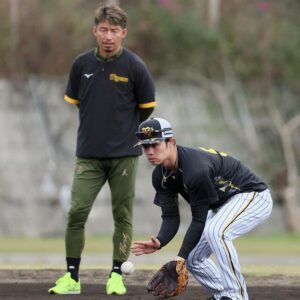
Daily schedule at the baseball dormitory
Life in the baseball dormitory is efficiently designed to allow players to perform at their best.
The daily schedule includes a balanced mix of training, practice, meals, and rest to support the players’ growth and health.
Here we go into detail about training and practice schedules, and the importance of diet and nutrition management.
Training and practice timetable
A day at the baseball dormitory starts early in the morning and lasts until late at night.
Below is an example of a typical daily schedule.
-
Early morning training :
- 5:30 AM Wake Up : Wake up early and do some light stretching or a quick morning jog to wake up your body and prepare for the day.
- 6:00 Exercises and stretching : We all gather together and do some exercises and stretching to loosen up muscles and prevent injuries.
-
Breakfast and rest :
- 6:30 Breakfast : A nutritionally balanced breakfast will be provided. The menu has been carefully selected by a professional nutritionist to give you plenty of energy.
- 7:00 Free time : After breakfast, players will have free time to shower and get ready. Players can use this time to relax.
-
Morning practice :
- 8:00 Technical Practice : Batting, pitching, defensive practice, etc. We will practice position-specific skills. We will hone the finer details under the guidance of our coach.
- 10:00 Tactical Practice : Team tactics and play will be reviewed. Through simulation games and tactical meetings, the team will deepen their tactical understanding.
-
Lunch and Breaks :
- 12:00 Lunch : A balanced lunch with carbohydrates and protein will be provided to refuel and prepare for the afternoon practice.
- 13:00 Break : Free time after lunch for players to relax and do some light stretching.
-
Afternoon practice :
- 14:00 Strength Training : Strength training including weight training and running to improve muscle strength and endurance.
- 16:00 Field practice : Practice on an actual field. Through defensive practice, base running, simulation games, etc., you will develop a sense of real combat.
-
Dinner and relaxation :
- 18:00 Dinner : A nutritionally balanced dinner will be provided. With plenty of protein and vegetables, you will recover from the day’s fatigue.
- 19:00 Relaxation time : After dinner you will have free time to relax in the recreation room or use the shared facilities.
-
Evening training :
- 20:00 Light evening training : After some relaxation, some light stretching and some mental training, I prepare myself for the next day.
-
Preparing for bed :
- 9:00pm Bath and prepare for bed : Take a bath and stretch to relax your body, then enjoy some quiet time and prepare for bed.
- 10:00 PM Bedtime : Players go to bed early to prepare for the next day. Quality sleep helps the body recover and grow.
The Importance of Diet and Nutrition Management
In baseball dormitories, great importance is placed on food and nutrition management to maximize the players’ performance.
Below are the main points regarding meals and nutrition management in the baseball dormitory.
-
Ensuring nutritional balance :
- Nutritionist supervision : Meals are supervised by professional nutritionists, and menus are provided according to the athlete’s physical condition and training content, ensuring a balanced intake of the necessary nutrients.
- It’s important to get a good balance of macronutrients : protein, carbohydrates, lipids, vitamins and minerals. Protein helps repair and grow muscles, carbohydrates give you energy and vitamins and minerals are needed to keep your body functioning.
-
Meal Timings :
- Proper timing : Eating before and after training is important. Before training, eat mostly carbohydrates to refuel, and after training, eat mostly protein to help muscles recover.
-
Importance of Hydration :
- Hydration : Hydration during training and games is essential to maintain performance and prevent heatstroke. Players should drink fluids regularly and manage their hydration appropriately.
-
Use of supplements :
- Use supplements : If necessary, use supplements such as protein and vitamin supplements, but avoid overdosing and use under the guidance of a specialist.
By incorporating these elements, life in a baseball dormitory provides an environment that allows players to perform at their best.
Next, let’s take a closer look at the benefits of living in a baseball dormitory.

The benefits of living in a baseball dormitory
Living in a baseball dormitory offers many benefits to players.
The focused training environment and opportunities to bond with teammates play an important role in players’ development and success.
Here we will explain in detail the benefits of living in a baseball dormitory.
A focused practice environment
-
Ample training facilities : The baseball dormitory is equipped with dedicated training rooms and grounds, allowing players to train in the best possible environment. This allows players to efficiently improve their individual skills and physical strength. The latest training equipment and facilities are available, allowing players to utilize the latest training methods.
-
Efficient Living : In the baseball dormitory, support for daily life such as meals, laundry, and cleaning is provided, so players can concentrate on practice and games. This allows players to use their time effectively and secure the time they need for training and rest. Meals are supervised by nutritionists, so players can eat a balanced diet, making it easier to manage their physical condition.
-
Consistent instruction : In the baseball dormitory, players can receive consistent instruction from dedicated coaches and trainers. Training plans are provided according to the needs and characteristics of each player, enabling effective practice. Through close communication with the coach, players will gain a deeper understanding of techniques and tactics, improving the quality of their play.
-
Maintaining concentration : By providing a quiet environment with less interference from the outside world, players can concentrate on their training. Maintaining concentration is especially important when preparing before a game and recovering after a game. A baseball dormitory provides the perfect environment for this.
Deepening bonds with teammates
-
Building trust through communal living : In the baseball dormitory, players live together and naturally build trust. By sharing daily life, they come to understand each other’s personalities and values, and a deep bond is born. This trust is extremely important for team play during games.
-
Improved communication : By living in a baseball dormitory, players have more opportunities to communicate with each other on a daily basis. This leads to smoother cooperation and communication during play, improving the performance of the entire team. Sharing fun times during meal times and recreation time also helps promote communication.
-
Mutual support system : In the baseball dormitory, a culture of mutual support is fostered among the players. Teammates strengthen their bonds through advice and encouragement during practice and help with daily life. This allows them to support each other and develop the ability to overcome difficult situations.
-
Team-building opportunities : Team-building activities and events are regularly held in the dorms. For example, training camps, recreational activities, etc. are held to increase the sense of unity of the team. This allows players to get to know each other better and build strong teamwork.
Living in a baseball dormitory offers many benefits to players and is an important factor in supporting their development and success.
Next, let’s take a closer look at the discipline and rules in the baseball dorms.

Discipline and rules in the baseball dormitory
When players live in a baseball dormitory, they maintain order and harmony throughout the team by being disciplined.
Discipline and rules are important elements for players to perform at a high level.
Here we will explain in detail the basic rules of living in the baseball dormitory and how to handle violations of the rules.
Basic Life Discipline
-
Punctuality : Punctuality is very important in the baseball dormitory. Wake-up times, meal times, practice start times, bedtimes, etc. are strictly set, and players must adhere to these. Being punctual contributes to the smooth running of the entire team and also leads to each player improving their self-management skills.
-
Cleanliness and tidiness : Keeping the rooms and common facilities clean is one of the basic rules. Players are expected to keep their rooms tidy and clean. When using common facilities, they are also required to tidy up so that others can use them comfortably. This helps maintain a healthy and comfortable living environment.
-
Courtesy and Manners : In the baseball dormitory, players are expected to be polite to each other, coaches, and staff. Greetings, expressing gratitude, and respecting others are fundamental. By observing courtesy and manners, good relationships within the team are built.
-
Obeying the rules : There are various rules in the baseball dormitory. These include obtaining permission before going out, prohibiting smoking and drinking, and managing personal belongings. Players are expected to observe these rules and improve their self-control. Obeying the rules leads to the growth of individual players and unity of the team.
-
Communication : It is also an important discipline to actively communicate with teammates, coaches, and staff. If you have a problem or concern, you are encouraged to consult with them at the appropriate time and seek a solution. Good communication will increase the morale of the entire team and contribute to improved performance.
Responses when rules are violated
-
Warning and guidance : For minor rule violations, a warning and guidance is given first. The player is taught to understand the rules and to avoid making the same mistake again. At this stage, the player is given an opportunity to improve. Coaches and staff remind the players of the importance of following the rules.
-
Warning : Repeated infractions or more serious breaches of the rules will result in a formal warning. The warning will be in writing and the player will be asked to take specific steps to improve. At this stage, the expectation is that the player will review and change their behaviour.
-
Penalties : Penalties may be imposed for serious or repeated violations that are not corrected. Penalties may include suspension from practice or games, or restrictions on use of certain facilities. This reinforces the importance of following the rules to players and discourages them from recurring.
-
Notification to parents and officials : In the case of minor players, parents and officials may be notified of any serious violations of the rules. This allows us to work with families to improve the players. The understanding and cooperation of parents and officials plays an important role in the development and adherence to discipline of players.
-
Expulsion from the dormitory : Finally, if the violation is serious and there is no hope of improvement, a player may be expelled from the dormitory. This is done as a last resort and reinforces to the player the importance of discipline. Expulsion is a tough step for a player and reminds other players of the importance of following the rules.
Discipline and rules in the baseball dormitory are essential for players to perform at a high level and for the entire team to maintain order.
By following these rules and regulations, players can improve their self-management and develop as members of a team.
Next, let’s take a closer look at the challenges and areas for improvement at the baseball dormitory.

Issues and areas for improvement in the baseball dormitory
Baseball dormitories offer many benefits to players, but they also present some challenges.
Addressing these challenges and identifying areas for improvement can help provide a better living environment.
Here we will explain in detail about stress management in dormitory life, areas for improvement, and future prospects.
Managing stress in dorm life
-
Stress due to change of environment : Moving into a baseball dormitory means a big change of environment for players. In the process of adapting to a new living environment and discipline, players may feel stressed. In order to reduce this stress, it is important to implement a gradual adaptation program and orientation to help players smoothly transition to a new environment.
-
Practice-life balance : In a baseball dormitory, players are expected to balance their practice and life. Excessive practice and a strict schedule can take a toll on players physically and mentally. Providing adequate rest time and relaxation activities can reduce stress and keep players healthy.
-
Stress from interpersonal relationships : In dormitory life, interpersonal relationships between players can also be a source of stress. In particular, friction and trouble can arise when players with different backgrounds and personalities live together. It is important to hold workshops to improve team-building and communication skills and deepen understanding between players.
-
Mental health care : As part of stress management, mental health care is becoming increasingly important. It is necessary to assign specialized counselors and mental trainers and create an environment where players can freely consult with them. Regular mental health checks should be carried out to detect and deal with problems early on.
Improvements and future prospects
-
Improving facilities : By further improving the facilities of the baseball dormitory, the living environment for the players can be improved. For example, the latest training equipment and relaxation spaces can be introduced, and a comfortable living environment can be created. This will allow the players to train in a better environment.
-
Diversifying programs : It is important for baseball dormitories to introduce programs that meet the diverse needs of players. For example, providing academic support programs, career counseling, cultural activities, and volunteer opportunities can help support the overall development of players.
-
Use of technology : Using the latest technology can improve the quality of training and life for athletes. For example, IoT devices and wearable devices can be used to manage athletes’ physical condition and performance data in real time and provide individually optimized training plans.
-
Building a community : It is also important to promote community activities both inside and outside the dorms and increase opportunities for players to connect with society. Regularly holding local events and fan meet-ups will provide players with opportunities to develop social skills, which will improve their ability to adapt to society.
-
Sustainable environment : One of our future aspirations is to promote a sustainable environment by running an eco-friendly dormitory. By implementing environmentally friendly operations such as installing energy-efficient equipment, implementing recycling programs, and creating green areas, we can also educate our players on environmental awareness.
By addressing the issues in the baseball dormitories and identifying areas for improvement, the living environment for the players will improve and their performance will be further enhanced.
In order to continue supporting the growth and success of our players, we will need to continue to evolve the baseball dormitory environment.
Next, let’s take a closer look at some success stories and episodes from baseball dormitories.

Success stories and episodes from baseball dormitories
Living in a baseball dormitory has had a major impact on the development and success of many famous athletes.
Here we will introduce some success stories and anecdotes from baseball dormitories, as well as the experiences of famous players and the impact that dormitory life has had on their development.
Famous players’ experiences in baseball dormitories
-
Ichiro (Ichiro Suzuki) : During his high school years, Ichiro lived in the baseball dormitory of Aichi Institute of Technology Meiden High School, a prestigious school in Aichi Prefecture. His dormitory life was known for its rigorous training and discipline, and was an important period in laying the foundations for Ichiro. He practiced from early morning until late at night, honing his baseball skills. This experience led to high performance and sustained success in his professional career.
-
Hideki Matsui : Hideki Matsui lived in a baseball dormitory while attending Seiryo High School in Ishikawa Prefecture and became a player who attracted national attention. During his dormitory life, he built strong bonds with his teammates through communal living and rigorous daily training. His hard work and teamwork spirit contributed greatly to his later success in professional baseball and major league baseball.
-
Shohei Otani : Shohei Otani lived in a baseball dormitory during his time at Hanamaki Higashi High School in Iwate Prefecture. His dormitory life was characterized by thorough self-control and advanced training. Otani maintained a serious attitude towards baseball and high motivation, building the foundation for his career as a two-way player. His experience in the baseball dormitory is the foundation of his current versatile playing style.
How dormitory life affected his development
-
Improved discipline and self-management : Living in a baseball dormitory helps players develop discipline and self-management. By following strict schedules and rules, players improve their ability to manage themselves and build a foundation as professionals. This experience will be important for self-management and role fulfillment within a team after going professional.
-
Cultivating mental strength and perseverance : Living together in a baseball dormitory helps players develop mental strength and perseverance. By adapting to the rigorous training and living environment, players acquire the ability to remain calm even in difficult situations. This mental strength helps them overcome pressure during games and contributes to improving their performance.
-
Improved teamwork and communication skills : Through dormitory life, players experience close communication with their teammates. Living together deepens mutual understanding and strengthens teamwork, which is very important for teamwork and tactical execution during games. In addition, improved communication skills also lead to captaincy and leadership.
-
Cultivating a sense of professionalism : Living in a baseball dormitory instills a sense of professionalism in players early on. By experiencing a high-level training environment and strict discipline, players learn professionalism. This sense plays an important role in how they play and behave within a team after they become professionals.
-
Maintaining motivation to achieve goals : Living in a dormitory creates an environment where players strive towards common goals. Setting team goals and working towards achieving individual goals keeps players motivated. This allows players to always work hard at training with a high level of motivation.
Living in a baseball dorm provides players with essential elements to their development and success.
Many famous players have grown significantly through their experience at baseball dormitories and have gone on to achieve great things in their careers.
Next, let’s take a closer look at how living in a baseball dormitory affects players’ development.
